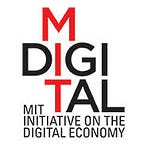Creating Digital Inclusiveness
MIT Solve Program Tackles Digital Inequality
Too much digital innovation to date has been exclusive — the domain of a limited set serving an even more limited subset of the population, IDE Co-director, Andrew McAfee, told attendees at a September 27 program hosted by MIT IDE and MIT Solve as part of Hubweek.
As noted by IDE Director Erik Brynjolfsson in his introductory remarks, one of the biggest challenges of our time is how to continue to create great bounty from digital technologies while also sharing the benefits more widely.
The Inclusive Innovation Competition is one way to identify and reward shared tech developments and it’s becoming clear that expanding opportunities in the digital age and inclusive innovation are inter-related parts of a virtuous cycle — each leads to the other and each will benefit society as a whole. Several speakers said that the stakes are high for finding solutions, and nothing short of rewiring the labor market is required. That’s what Byron Auguste hopes to do as co-founder of Opportunity@work where he is creating smarter ways to match talent and jobs. “If we keep the status quo labor market, emerging tech could displace middle class jobs,” he said.
Auguste faults institutions, not technology, for favoring traditional selection criteria over competency and skills in hiring practices. “By definition that excludes many potential workers.”
Among the speakers, Mitch Kapor, described two key ways he is diversifying his VC investment portfolio at Kapor Capital: One is by diversifying his own staff, and the second is reaching out to under-represented groups. “Genius is evenly distributed by zip code,” he told the audience, “but opportunity isn’t.”
He also is striving to correct the myth — prevalent in Silicon Valley — that ventures with positive social impact have to sacrifice revenue and economic value. “Finding models that achieve both — that’s the bull’s eye we’re looking for.”
Other speakers included James Manyika, McKinsey, Michelle Moore, Bank of America, Ellen Alberding of the Joyce Foundation, and Zia Khan the Rockefeller Foundation.
Watch for more coverage and announcement of the IIC winners tonight!
